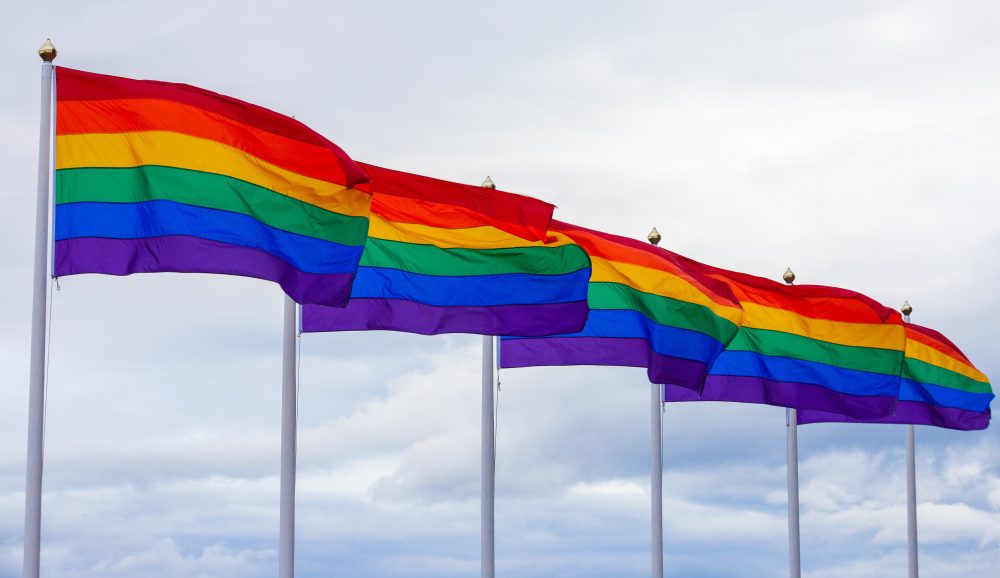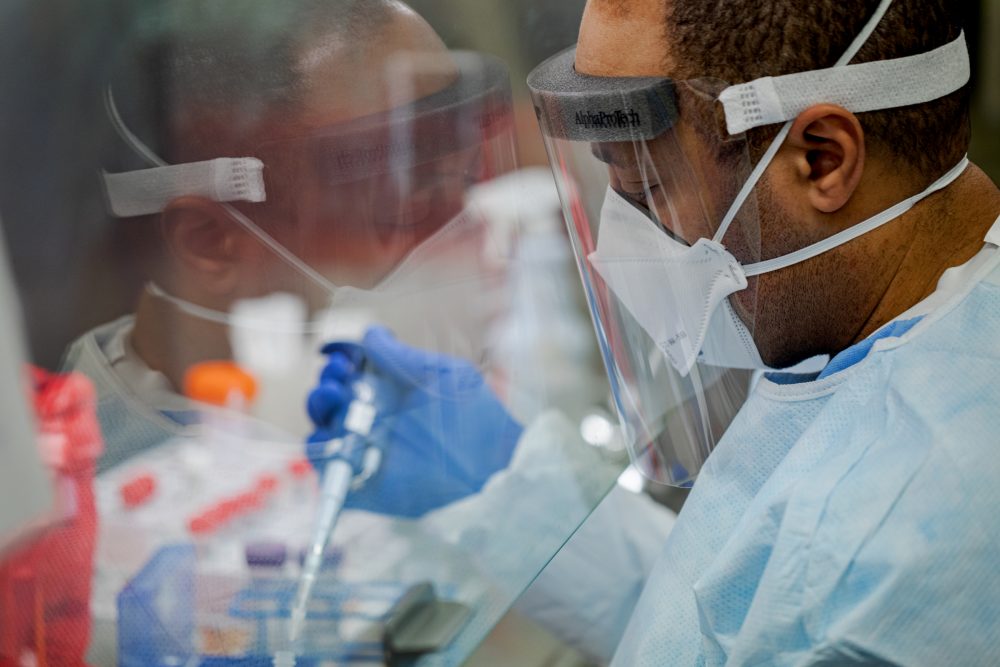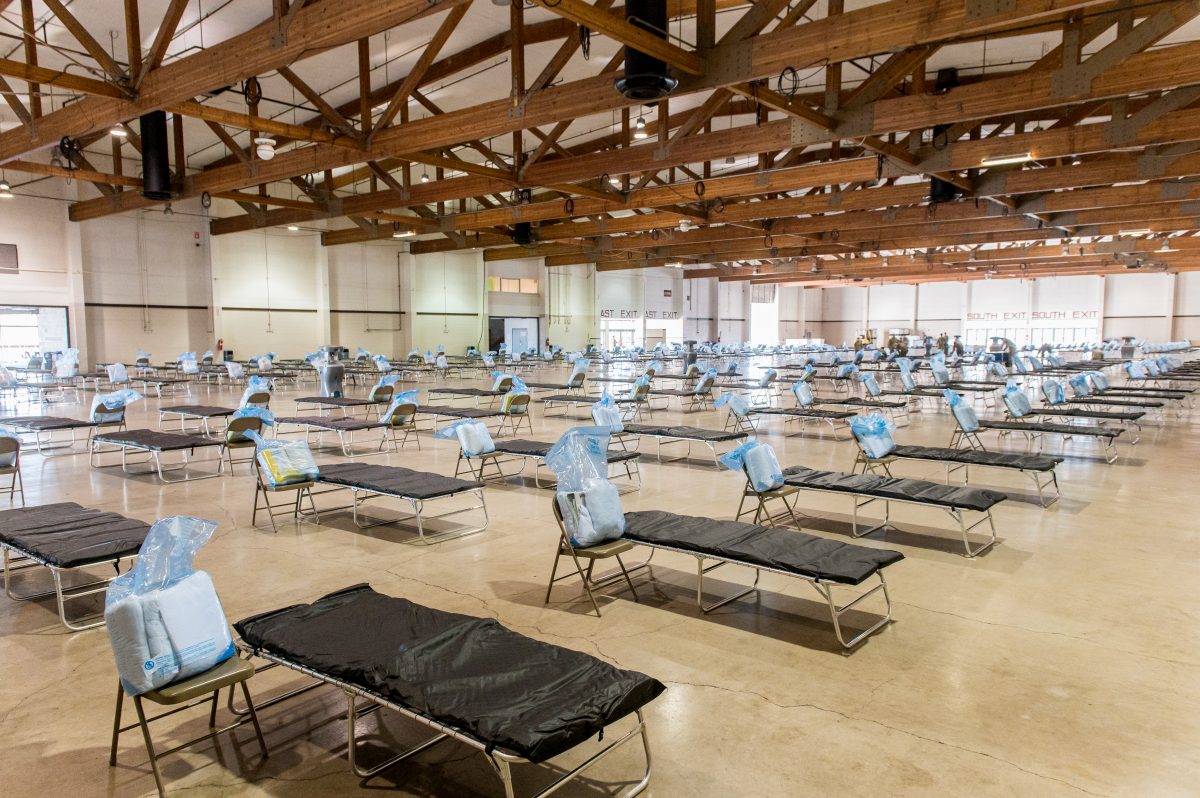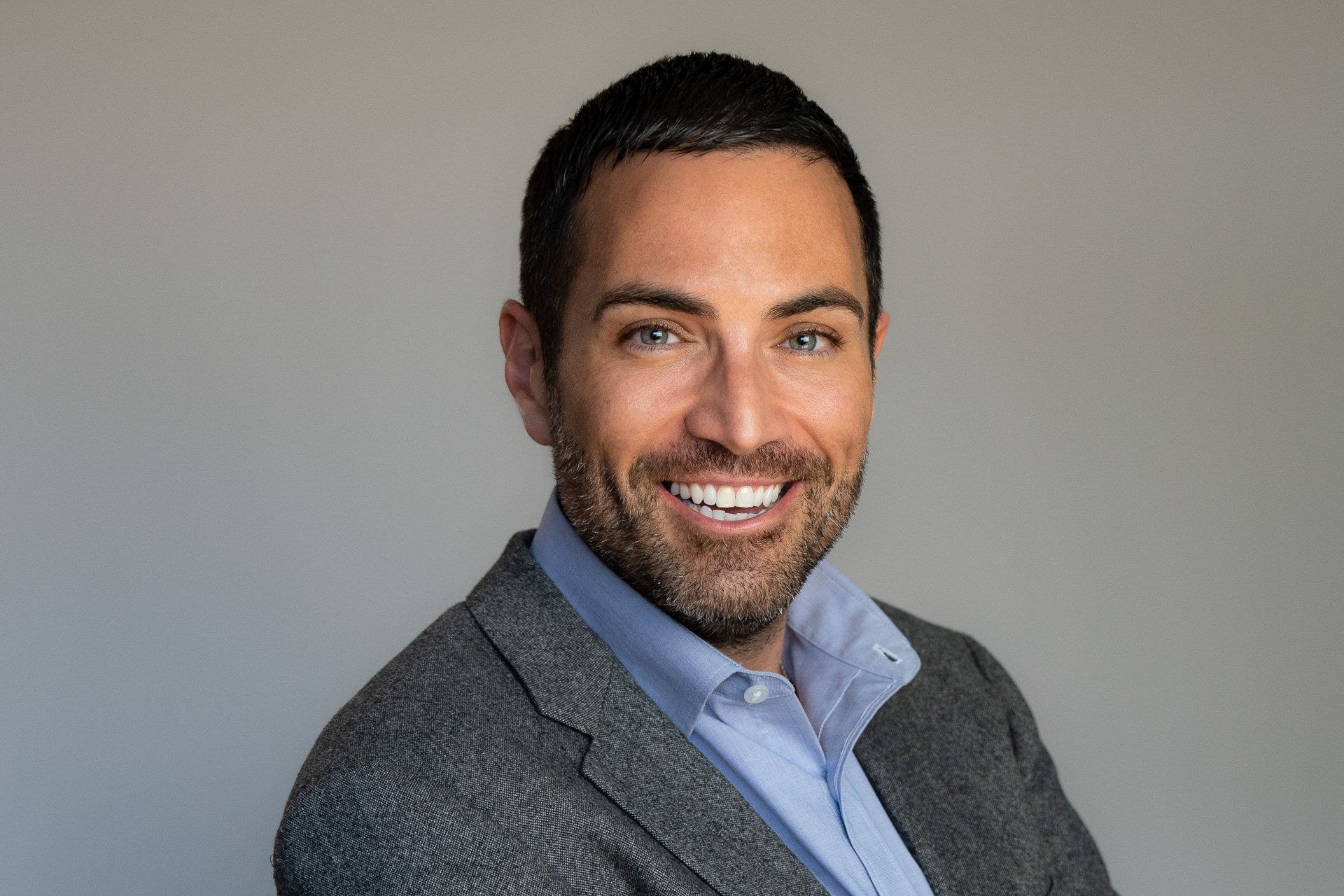For equitable recovery from COVID-19, we can’t leave LGBTQ+ people behind
Editor’s Note: This blog is part of our “Equity in Disasters” series. The series, which focuses primarily on racial equity and justice issues, also explores how these intersect with other kinds of marginalization and the ways that historical and systemic discrimination create an uneven playing field for recovery. Disasters lay bare the inequities that exist […]

Editor’s Note: This blog is part of our “Equity in Disasters” series. The series, which focuses primarily on racial equity and justice issues, also explores how these intersect with other kinds of marginalization and the ways that historical and systemic discrimination create an uneven playing field for recovery.
Disasters lay bare the inequities that exist in societies around the world. Never has this been more apparent than now, as we are seeing the impacts of COVID-19 affecting different communities in different ways.
Similar to the experiences of communities of color and other historically marginalized populations, COVID-19 provides a clear example of how disasters exacerbate prejudice and inequities as LGBTQ+ communities have suffered more significant health impacts, disproportionate socioeconomic impacts and increased stigmatization compared to heterosexual, white, cisgender people.
For all communities to recover equitably, philanthropy needs to understand the impact of these inequities, address root causes and explore how to best support LGBTQ+-led and LGBTQ+-serving organizations before, during and after disasters.
Disasters amplify inequities
History has shown us, and experience has taught us, that in times of crisis, those most marginalized tend to suffer disproportionately compared to the broader population. Even in the absence of the current global pandemic, lesbian, gay, bisexual, transgender, intersex and queer (LGBTQ+) people are among the most marginalized groups in societies across the world. They experience higher levels of violence, exclusion and deprivation, especially where stigma, discrimination and criminalization of same-sex relations or transgender identities prevail. In times of crisis, these vulnerabilities are amplified.
In countries where LGBTQ+ people face social stigma, moral degradation, exclusion, legal discrimination and criminalization, they have less access to appropriate health care and economic opportunities. They are more likely to be poor, particularly in contexts where some LGBTQ+ people were left out of government’s economic recovery measures.
Disproportionate impacts of COVID-19 on LGBTQ+ people in the U.S.
Limited early data available suggests that LGBTQ+ people have been disproportionately affected by COVID-19 pandemic in the U.S. The reasons are far-reaching and may include:
- Higher rates of comorbidities that put LGBTQ+ individuals at greater risk of worse COVID-19 outcomes.
- Working in highly affected industries such as health care and restaurants/food services.
- Living on lower-than-average incomes than non-LGBTQ+ people.
- Experiencing stigma and discrimination related to sexual orientation/gender identity, including in accessing health care.
- For transgender individuals, being less likely to have health coverage.
At the onset of the pandemic, the HRC Foundation issued a brief that noted LGBTQ+ people and families are more likely than the general population to live in poverty and lack access to adequate medical care, paid medical leave and basic necessities. As a result, LGBTQ+ people are at greater risk of adverse economic consequences associated with the coronavirus.
Recent data from the KFF Covid-19 Vaccine Monitor and Human Rights Campaign confirms that LGBTQ+ people have experienced the COVID-19 pandemic differently than non-LGBTQ+ people such as:
- Economic security: A larger share of LGBTQ+ adults compared to non-LGBTQ+ adults in the U.S. reported that they or someone in their household experienced COVID-era job loss (56% vs. 44%). LGBTQ+ people are still 30% more likely than the general population to have lost their jobs following the initial reopening of the economy. LGBTQ+ people were also 50% more likely – and LGBTQ+ people of color 150% more likely – than the general population to have suffered a pay cut since the U.S. began initiating reopening policies, highlighting the importance of considering intersectionality when planning for equitable recovery.
- Mental health: Three-fourths of LGBTQ+ people (74%) said worry and stress from the pandemic have negatively affected their mental health, compared to 49% of those who are not LGBTQ+. They also are more likely to say that the negative impact has been significant (49% vs. 23%).
Disproportionate impacts of disasters and crises on LGBTQ+ people globally
Several new reports, including “Vulnerability Amplified” by OutRight Action International, which recently received a grant from Center for Disaster Philanthropy’s COVID-19 Response Fund, reveal some of the negative trends we are seeing worldwide:
- LGBTQ+ people are reluctant to seek health care, even when the situation is dire. Access to medical assistance can be a huge barrier to LGBTQ+ people who fear discrimination within the health care system. The fear is especially true for people whose gender marked on identity documents doesn’t match their gender identity or if their HIV status is disclosed. Even in the absence of a pandemic, LGBTQ+ people worldwide face discrimination, stigma, refusal of services and confidentiality breaches within health services.
- Many LGBTQ+ people are struggling to meet their basic needs, including food needs.
Broader societal discrimination also bars many LGBTQ+ people from pursuing education and job opportunities. As a result, many work day-to-day in the informal economy, which was effectively shut down when shelter-in-place measures were implemented in many countries due to the pandemic. They are unable to make any money and are often without savings. - LGBTQ+ people who face discrimination from family members due to actual or perceived gender identity or sexual orientation are at higher risk of domestic violence and abuse.
Lockdowns and quarantines have forced cohabitation with unsupportive family or abusive partners. - LGBTQ+ couples have reported being denied food and other aid.
Gay and lesbian couples don’t count as a “family” in the eyes of many local governments.
We are also seeing the compounding effects of the global COVID-19 pandemic on LGBTQ+ populations caught up in the global refugee crisis. In a recent report, Rainbow Railroad raised concerns about the unique vulnerabilities of displaced LGBTQ+ persons and refugees during COVID-19. Below are three specific examples cited in their report:
- COVID-19 could take a foothold in refugee populations where LGBTQ+ persons are already uniquely vulnerable.
- COVID-19 could lead to more crackdowns on LGTBQ+ persons, causing further displacement.
- Border closures as a result of COVID-19 could lead to the breakdown of refugee resettlement and a refusal to accept asylum claims.
Many LGBTQ+ organizations across the world have responded by shifting from human rights-focused programs to providing local humanitarian relief. Despite this, LGBTQ+ communities have been largely excluded from COVID-19 humanitarian resources.
Beyond COVID-19
It is not just the pandemic where we see disproportionate effects on LGBTQ+ people affected by disaster and crises. Oxfam research revealed that following the Indian Ocean tsunami in 2004, transgender women were denied access to temporary shelters because their appearance didn’t match the gender listed on their ID documents. An OutRight report on the 2010 Haiti earthquake recovery effort showed that even well-intentioned, gender-specific food distribution queues excluded some LGBTQ+ people from accessing aid. In a recent survey by Organization for Refuge, Asylum and Migration (ORAM) of LGBTQ+ refugees in Kenya, 83% reported being physically assaulted, 88% were denied police assistance, 76% were denied shelter and 83% denied access to basic services.
International agencies involved in emergency response have begun to narrow this protection gap. In 2015, 12 United Nations agencies, including the UN High Commissioner for Refugees and the World Food Program, both major humanitarian players, issued a joint LGBTQ+ rights statement. It reiterated that LGBTQ+ people “often face violence and discrimination when seeking refuge from persecution and in humanitarian emergencies.”
In reality, while some advancement has been made, much work remains to be done in terms of policy and practice within the humanitarian and disaster response sectors.
What is CDP doing about this?
June is Pride Month in the U.S., as well as World Refugee Awareness Month, and is an opportunity to shine a spotlight on the disproportionate impacts of disasters and crises on LGBTQ+ people globally. At CDP, we used June as an opportunity to identify and fund two new partner organizations working to address the needs of LGBTQ populations worldwide, including those suffering impacts from COVID-19 and those affected by the global refugee crisis.
- We made a $500,000 contribution to OutRight International’s COVID Emergency Fund, which makes small grants ($5,000 – $20,000) to local grassroots organizations to improve the lives and conditions of vulnerable LGBTQ+ people who have been disproportionately affected by the Covid-19 pandemic and containment measures, and who have too often been excluded from relief efforts due to binary gendered approaches, non-inclusive definitions of “family” or homophobic or transphobic attitudes by government and relief workers. With CDP’s support, we estimate that 33 grants at an average value of $13,000 will be made to local organizations (nearly all LGBTQ+-led) in Africa, Asia-Pacific, Middle East and Latin America. In addition to meeting immediate and medium-term recovery needs, the grant will help build the resilience of the LGBTQ+ rights movement globally, which will allow these organizations to continue to respond to the needs of LGBTQ+ people before, during and after future disasters.
- We also made a $65,000 grant from our Global Recovery Fund to ORAM, towards a two-country program targeting vulnerable LGBTIQ refugees in the regional migration hubs of Kenya and Mexico. CDP’s grant will support skills and capacity building training and enterprise seed-funding to those unable to access education and training due to their sexual orientation and/or gender expression and identity, as well as their status as a foreigner and refugee. The program will enable these vulnerable individuals to have a fair chance at finding or creating meaningful employment and safely meeting their basic needs. A secondary goal of the project is to build the capacity of the local and community-based organizations to continue to serve new influxes of LGBTQ+ refugees, thereby bolstering resilience among the communities themselves as well as the organizations that are serving them.
For more information about the issues facing LGBTQ+ people affected by crises around the world, some of the programs being implemented to address these needs and the great work our partners are doing, please visit OutRight Action International’s and ORAM’s websites. You can also read CDP’s in-depth Issue Insight on LGBTQ+ communities.
More like this

COVID-19: Approaches for Funders

